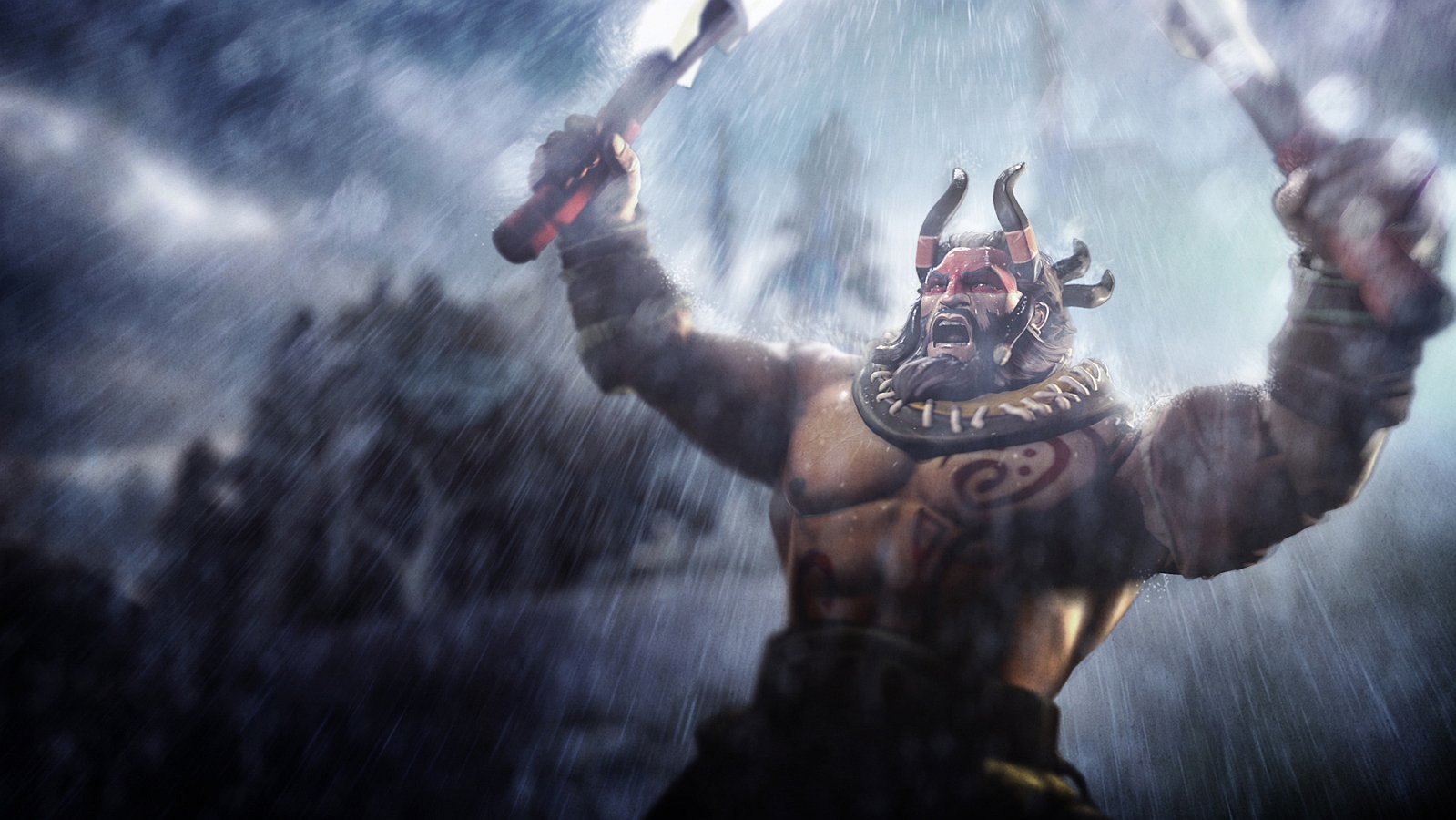Great moments in yelling at Dota
IT'S A DISAAAAAAAAAAAAAAAAAAAAAAAAAAAAAAARGGHH.

Every week, Chris documented his complex ongoing relationship with Dota 2 and wizards in general. To read more Three Lane Highway, click here.
A play isn't a play without somebody bellowing like a maniac. The best moments in the history of competitive Dota are remembered just as much for the noises they inspired as the skill involved in pulling them off. Ludicrous damage spikes and sudden carnage are fantastic for the spectator experience—and, similarly, a boon to shoutcasters.
Straightforward as it might seem at first, there is a subtle art to screaming at videogames. Each wayward vocalisation belongs to a metagame all of its own, adapting and evolving core principles that have existed since humans first got incredibly worked up about a 20-year old becoming a millionaire by pressing 'R'.
Let's explore the subtle art of yelling.
Method #1: THE ONE-WORD SPECIAL
"It's a disaaaAAAIIIIIster!"
- Toby 'TobiWan' Dawson
Nobody has done more to advance the number of vowels that are actually in the words 'hole' and 'disaster' than TobiWan. Universe's $6m Echo Slam at TI5 is one instance of a trend with a history as old as the game. By singling out a single word and stretching it to breaking point, the word and the moment associated with it are forever bound together. Nobody will ever call what happened to CDEC in that Rosh pit a 'catastrophe'. It will always be a DISAAAAAAIIIIISTERR. Pronounced exactly like that.
Method #2: ONE SENTENCE, NO AIR
"lightofheavenwithTHEHUGESTBLACKHOOOLEEEE"
Keep up to date with the most important stories and the best deals, as picked by the PC Gamer team.
- Toby 'TobiWan' Dawson, again
The key to taking a sentence and cramming it into a single word isn't just speaking quickly: it's escalation. That sentence has to have room to grow, even when you're casting punctuation aside. This lends the moment drama, and gives the audience the sense that they are going on a journey with the caster (the destination is 'yelling'). In the best examples, as above, the caster is already shouting when they start, meaning that their word-sentence ends up somewhere in 'wordless screaming' territory. A great non-gaming example of exactly this technique is demonstrated by Pierce Brosnan in the movie Taffin.
Method #3: THE PAUSE
"Oh! DD rune picked up. Ferrari. On the back foot. Puppey is doing it. Left right and centre. Making things happen. Ferrari. That's the phase shift. He's gotta use it soon. He will.
Woauow!"
- David 'LD' Gorman
That's a popular clip, and it'd be easy to assume that it's because of the way LD says 'wow'—or the fact that he says it about a moment that is otherwise completely pedestrian. I disagree. This is not a wonderful moment because of the 'wow', great as it is, because if it was it'd simply be a muted version of method #1. The magic of this clip is the pause right before LD says 'wow'. It's the moment when the commentary hangs slightly, nothing of note happens, and then LD says 'wow' anyway. This allows that magical 'wow' to stand in isolation, a glittering anticlimax. TobiWan would pack a dozen extra vowels into that 'wow' to make it stand out. LD doesn't do that. LD stops, collects himself, and states: no. Two 'o's, an 'a' and maybe a 'u' will do.
Method #4: THE WORD YOU KNEW IS GONE
"Oogh. Oogh. Hex on SoNNeikO DOOOORRRRRRGGGHH-HOOOOOIIII-HAHAHHHHHHHH."
- Owen 'ODPixel' Davies
Nobody will ever know what ODPixel's next word was going to be. It, like three fifths of OG, was obliterated in the moment that followed—lost to history, replaced by pure noise. This zero-to-sixty approach is notable because it involves no escalation whatsoever: there is talking, and then there is shouting. The moment between the two is too narrow to be observed, like the point when a nuclear bomb has started to go off but hasn't really gone off yet. Somehow, despite involving no actual words, this approach nonetheless manages to express what we were all thinking. I was thinking "HOOOOOOOOOOOOOOOOOOIIIIIAAAAARRGGHHAHAHHH".
Method #5: SHOUT FOR ONE HUNDRED MINUTES
I would like this to qualify as a method all of its own, but in reality only one instance of it exists: the Korean casting team's coverage of IG vs. DK game two at TI3. This game smothered Benaroya Hall like a heavy blanket in the hands of a sad murderer. People slept in their seats as absolutely nothing happened for more than an hour and a half. It was like watching competitive Farmville—in fact, it wasn't 'like' that. It was that. I saw part of the game from the hall itself and part from the Russian casting booth, where I had wandered in a bored stupor. The Russian casters sounded bored too. In that moment, only the Korean team had a solution. Their solution was to shout for fully a hundred minutes, seemingly without breathing, ignoring every principle—casting requires moments of escalation and quiet, sometimes human beings need to breathe—that professional commentary otherwise adheres to. I will always respect them for this. We will never see this game's like again, thank god.
Joining in 2011, Chris made his start with PC Gamer turning beautiful trees into magazines, first as a writer and later as deputy editor. Once PCG's reluctant MMO champion , his discovery of Dota 2 in 2012 led him to much darker, stranger places. In 2015, Chris became the editor of PC Gamer Pro, overseeing our online coverage of competitive gaming and esports. He left in 2017, and can be now found making games and recording the Crate & Crowbar podcast.


